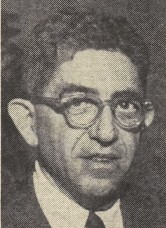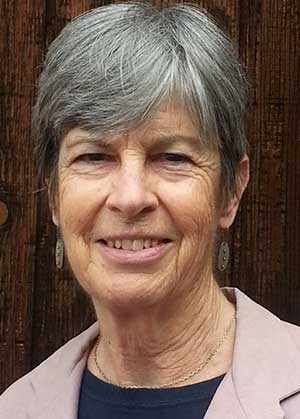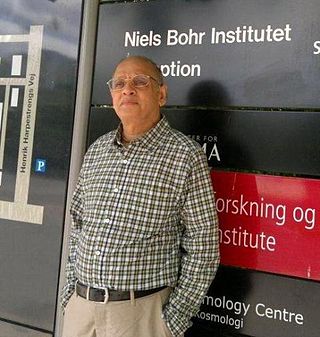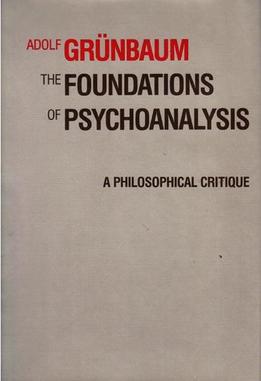Science is a rigorous, systematic endeavor that builds and organizes knowledge in the form of testable explanations and predictions about the world. Modern science is typically divided into three major branches: the natural sciences, which study the physical world; the social sciences, which study individuals and societies; and the formal sciences, which study formal systems, governed by axioms and rules. There is disagreement whether the formal sciences are science disciplines, as they do not rely on empirical evidence. Applied sciences are disciplines that use scientific knowledge for practical purposes, such as in engineering and medicine.
A theory is a rational type of abstract thinking about a phenomenon, or the results of such thinking. The process of contemplative and rational thinking is often associated with such processes as observational study or research. Theories may be scientific, belong to a non-scientific discipline, or no discipline at all. Depending on the context, a theory's assertions might, for example, include generalized explanations of how nature works. The word has its roots in ancient Greek, but in modern use it has taken on several related meanings.
Philosophy of science is the branch of philosophy concerned with the foundations, methods, and implications of science. Amongst its central questions are the difference between science and non-science, the reliability of scientific theories, and the ultimate purpose and meaning of science as a human endeavour. Philosophy of science focuses on metaphysical, epistemic and semantic aspects of scientific practice, and overlaps with metaphysics, ontology, logic, and epistemology, for example, when it explores the relationship between science and the concept of truth. Philosophy of science is both a theoretical and empirical discipline, relying on philosophical theorising as well as meta-studies of scientific practice. Ethical issues such as bioethics and scientific misconduct are often considered ethics or science studies rather than the philosophy of science.

Hilary Whitehall Putnam was an American philosopher, mathematician, computer scientist, and figure in analytic philosophy in the second half of the 20th century. He contributed to the studies of philosophy of mind, philosophy of language, philosophy of mathematics, and philosophy of science. Outside philosophy, Putnam contributed to mathematics and computer science. Together with Martin Davis he developed the Davis–Putnam algorithm for the Boolean satisfiability problem and he helped demonstrate the unsolvability of Hilbert's tenth problem.
A scientific theory is an explanation of an aspect of the natural world and universe that can be repeatedly tested and corroborated in accordance with the scientific method, using accepted protocols of observation, measurement, and evaluation of results. Where possible, some theories are tested under controlled conditions in an experiment. In circumstances not amenable to experimental testing, theories are evaluated through principles of abductive reasoning. Established scientific theories have withstood rigorous scrutiny and embody scientific knowledge.
Empirical evidence for a proposition is evidence, i.e. what supports or counters this proposition, that is constituted by or accessible to sense experience or experimental procedure. Empirical evidence is of central importance to the sciences and plays a role in various other fields, like epistemology and law.

Ernest Nagel was an American philosopher of science. Along with Rudolf Carnap, Hans Reichenbach, and Carl Hempel, he is sometimes seen as one of the major figures of the logical positivist movement. His 1961 book The Structure of Science is considered a foundational work in the logic of scientific explanation.
The philosophy of biology is a subfield of philosophy of science, which deals with epistemological, metaphysical, and ethical issues in the biological and biomedical sciences. Although philosophers of science and philosophers generally have long been interested in biology, philosophy of biology only emerged as an independent field of philosophy in the 1960s and 1970s, associated with the research of David Hull. Philosophers of science then began paying increasing attention to biology, from the rise of Neodarwinism in the 1930s and 1940s to the discovery of the structure of DNA in 1953 to more recent advances in genetic engineering. Other key ideas include the reduction of all life processes to biochemical reactions, and the incorporation of psychology into a broader neuroscience.

Nancy Cartwright, Lady Hampshire is an American philosopher of science. She is a professor of philosophy at the University of California at San Diego and the University of Durham. Currently, she is the President of the Division for Logic, Methodology and Philosophy of Science and Technology of the International Union of History and Philosophy of Science and Technology.
Patrick Colonel Suppes was an American philosopher who made significant contributions to philosophy of science, the theory of measurement, the foundations of quantum mechanics, decision theory, psychology and educational technology. He was the Lucie Stern Professor of Philosophy Emeritus at Stanford University and until January 2010 was the Director of the Education Program for Gifted Youth also at Stanford.

Helen Elizabeth Longino is an American philosopher of science who has argued for the significance of values and social interactions to scientific inquiry. She has written about the role of women in science and is a central figure in feminist epistemology and social epistemology. She is the Clarence Irving Lewis Professor of Philosophy at Stanford University. In 2016, she was elected to the American Academy of Arts and Sciences.
Scientific pluralism is a position within the philosophy of science that rejects various proposed unities of scientific method and subject matter. Scientific pluralists hold that science is not unified in one or more of the following ways: the metaphysics of its subject matter, the epistemology of scientific knowledge, or the research methods and models that should be used. Some pluralists believe that pluralism is necessary due to the nature of science. Others say that since scientific disciplines already vary in practice, there is no reason to believe this variation is wrong until a specific unification is empirically proven. Finally, some hold that pluralism should be allowed for normative reasons, even if unity were possible in theory.
The semantic view of theories is a position in the philosophy of science that holds that a scientific theory can be identified with a collection of models. The semantic view of theories was originally proposed by Patrick Suppes in “A Comparison of the Meaning and Uses of Models in Mathematics and the Empirical Sciences” as a reaction against the received view of theories popular among the logical positivists. Many varieties of the semantic view propose identifying theories with a class of set-theoretic models in the Tarskian sense, while others specify models in the mathematical language stipulated by the field of which the theory is a member.
Frederick Suppe is a professor Emeritus of philosophy at the University of Maryland. He has prominent work in the philosophy of science including much work with the semantic view of theories.
In the philosophy of science, structuralism asserts that all aspects of reality are best understood in terms of empirical scientific constructs of entities and their relations, rather than in terms of concrete entities in themselves.
In philosophy, a razor is a principle or rule of thumb that allows one to eliminate unlikely explanations for a phenomenon, or avoid unnecessary actions.
Formal semantics is the study of grammatical meaning in natural languages using formal tools from logic, mathematics and theoretical computer science. It is an interdisciplinary field, sometimes regarded as a subfield of both linguistics and philosophy of language. It provides accounts of what linguistic expressions mean and how their meanings are composed from the meanings of their parts. The enterprise of formal semantics can be thought of as that of reverse-engineering the semantic components of natural languages' grammars.

Ravi Veeraraghavan Gomatam is the director of Bhaktivedanta Institute and the newly formed Institute of Semantic Information Sciences and Technology, Mumbai. He teaches graduate-level courses at these institutes. He was an adjunct professor at Birla Institute of Technology & Science (BITS), Pilani, Rajasthan, India (1993–2015).

The Foundations of Psychoanalysis: A Philosophical Critique is a 1984 book by the philosopher Adolf Grünbaum, in which the author offers a philosophical critique of the work of Sigmund Freud, the founder of psychoanalysis. The book was first published in the United States by the University of California Press. Grünbaum evaluates the status of psychoanalysis as a natural science, criticizes the method of free association and Freud's theory of dreams, and discusses the psychoanalytic theory of paranoia. He argues that Freud, in his efforts to defend psychoanalysis as a method of clinical investigation, employed an argument that Grünbaum refers to as the "Tally Argument"; according to Grünbaum, it rests on the premises that only psychoanalysis can provide patients with correct insight into the unconscious pathogens of their psychoneuroses and that such insight is necessary for successful treatment of neurotic patients. Grünbaum argues that the argument suffers from major problems. Grünbaum also criticizes the views of psychoanalysis put forward by other philosophers, including the hermeneutic interpretations propounded by Jürgen Habermas and Paul Ricœur, as well as Karl Popper's position that psychoanalytic propositions cannot be disconfirmed and that psychoanalysis is therefore a pseudoscience.
Roman Frigg is a Swiss philosopher and professor at the Department of Philosophy, Logic and Scientific Method at the London School of Economics, where he also directs its Centre for Philosophy of Natural and Social Science. He is also visiting professor at the Munich Centre for Mathematical Philosophy at Ludwig Maximilian University. In 2016 he was awarded the Friedrich Wilhelm Bessel Research Award.





